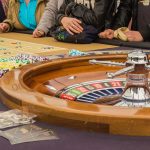Cheating on Gambling in New South Wales

The New South Wales government strictly regulates gambling in our state.
There are mountains of rules and regulations dictating when, where and how people are allowed to gamble.
Those rules make it illegal to conduct a betting event without a licence or authorisation– even betting money on a coin toss between friends amounts to an offence. A notable exception, of course, is a game of two-up on commemorative days such as Anzac Day.
This blog focuses on offences relating to cheating on gambling events or operations in NSW, which are primarily contained in the Unlawful Gambling Act 1998, Casino Control Act 1992, Gaming Machines Act 2001 and Crimes Act 1900.
Unlawful Gambling Act 1998
Section 18 of the Unlawful Gambling Act is headed ‘Cheating’, and prescribes a maximum penalty of two years’ imprisonment and/or a fine of $11,000 for any person who, while engaging in lawful gambling, obtains, or attempts to obtain, any money or advantage for him or herself or any other person by way of a fraudulent:
- trick, device, sleight of hand or representation, or
- scheme or practice, or
- use of gaming equipment or any other thing, or
- use of an instrument or article of a type normally used in connection with gambling (or appearing to be such an item).
Casino Control Act 1992
Section 87 of the Casino Control Act is also headed ‘Cheating’ and prescribes the same two year and/or $11,000 maximum penalty for any person who, in a casino, obtains or attempts to obtain a benefit, or induces or attempts to induce another to deliver, give or credit a benefit, or causes or attempts to cause a detriment by the dishonest use of any:
- trick, device, sleight of hand or representation, or
- scheme or practice, or
- object or gaming equipment, or
- instrument or article of a type normally used in connection with gaming (or appearing to be such an item).
Subsection 87(1A) of the Act imposes a $2,200 maximum penalty for any person who obtains a benefit from playing a game in a casino in contravention of the rules or due to an error or oversight in the conduct of the game, and dishonestly retains that benefit despite initially receiving it without any dishonesty.
Subsection 87(2) stipulates that a person in a casino must not knowingly possess bogus, counterfeit or stolen chips, or cards, dice or coins that are marked, loaded or tampered with, or any equipment, device or thing that permits or facilitates cheating or stealing.
The maximum penalty is 12 months’ imprisonment and/or a fine of $5,500.
Gaming Machines Act 2001
Section 80 of the Gaming Machines Act is headed ‘Cheating and unlawful interference with gaming machines’ and prescribes a maximum penalty of 12 months imprisonment and/or an $11,000 fine on any person who:
- possesses a device made, adapted or intended to interfere with the normal operation of an approved gaming machine in a hotel or on the premises of a club, or
- does anything calculated, or likely, to interfere with the normal operation of such a machine, or
- does anything calculated to render such a machine temporarily or permanently incapable of producing a winning combination.
Or who with intent to dishonestly obtain money or a financial advantage, inserts into such a machine anything other than:
- a coin or token of the denomination or type displayed, or
- a banknote of an approved denomination, or
- a card of an approved type.
Or who by any fraudulent representation, scheme, practice or use obtains a benefit for him or herself, or another person, or induces a person to deliver, give or credit any money, benefit, advantage, valuable consideration or security in connection with such a machine.
Or who without lawful excuse, possesses or uses in a hotel or club any equipment, device or thing that permits or facilitates cheating or stealing in connection with such a machine.
Or who knows of any faulty or fraudulent computer programming and as a result gains, or gains for another person, an advantage in the operation of such a machine.
Or who authorises or permits any of the above activity.
Section 80A of the Act makes it an offence punishable by a maximum fine of $11,000 to claim a prize from the playing of any such machine knowing the claim is false or misleading in a material respect.
Crimes Act 1900
Part 4ACA of the Crimes Act was inserted on 13 September 2012, adopting recommendations made in a 117 page report by the NSW Law Reform Commission titled ‘Cheating on Gambling’.
The Part shares the same heading (‘Cheating on gambling’), and contains four offences which significantly expand the scope of ‘cheating’ in our state and carry the heavy maximum penalty of 10 years’ imprisonment.
The first is embodied in section 193N, which makes it an offence to corrupt a betting outcome of an event:
- knowing or being reckless as to whether the conduct so corrupts the outcome, and
- intending to obtain a financial advantage, or causing a financial disadvantage, in connection with the event.
Section 193H defines ‘corrupting betting outcome of event’ as conduct which:
- affects or, if engaged in, would be likely to affect the outcome of any type of betting on the event, and
- is contrary to the standards of integrity that a reasonable person would expect.
Section 193J defines ‘event’ as any event in Australia on which it is lawful to bet.
Section 193L makes clear that the prosecution must prove that the defendant:
- meant to obtain a financial advantage, or cause a financial disadvantage, in connection with betting on the event, or
- was aware that another person meant to obtain a financial advantage, or cause a financial disadvantage, in connection with betting on the event, as a result of the conduct the subject of the charge.
There is no requirement to prove that an advantage was actually obtained or a financial disadvantage caused.
The second offence is contained in section 1930, which makes it a crime to ‘facilitate conduct that corrupts betting outcome of an event’ while:
- knowing or being reckless as to whether the conduct facilitated corrupted the betting outcome of the event, and
- having the intention of obtaining a financial advantage, or causing a financial disadvantage, in connection with any betting on the event.
The definition of ‘facilitates’ is:
- offers to engage in such conduct, or
- encourages another person to engage in such conduct, or
- enters into an agreement about such conduct.
The third offence is ‘Concealing conduct or agreement about conduct that corrupts betting outcome of event’, which is contained in section 193P.
The section makes it a crime to encourage another person to conceal from an appropriate authority conduct, or an agreement about conduct, that corrupts a betting outcome of an event while:
- knowing or being reckless as to whether the conduct so corrupts, and
- intending to obtaining a financial advantage, or causing a financial disadvantage, in connection with the event.
An ‘appropriate authority’ includes a police officer and an official body that controls, regulates or supervises the event, or any betting on the event.
Finally, section 193Q prohibits the making ‘use of corrupt conduct information or inside information for betting purposes’.
The section states that person who knowingly or recklessly possesses corrupt conduct information or inside information is guilty of an offence if he or she:
- bets on the event, or
- encourages another person to bet in a particular way, or
- communicates the information to another knowing he or she would be likely to bet.
‘Corrupt conduct information’ is defined as information about conduct, or proposed conduct, that corrupts a betting outcome of the event.
‘Inside information” is that which:
- is not generally available, and
- if it were generally available, would, or would be likely to, influence persons who commonly bet on the event in deciding whether or not to bet.
Fraud
Those facing cheating offences may also be charged with fraud under section 192E of the Crimes Act.
For a person to be found guilty of fraud, the prosecution must prove beyond reasonable doubt that:
- By deception, the defendant acted dishonestly, and
- Thereby obtained a financial advantage or caused another a financial disadvantage, and
- The actions were intentional or reckless.
The maximum penalty for fraud is 10 years’ imprisonment.






